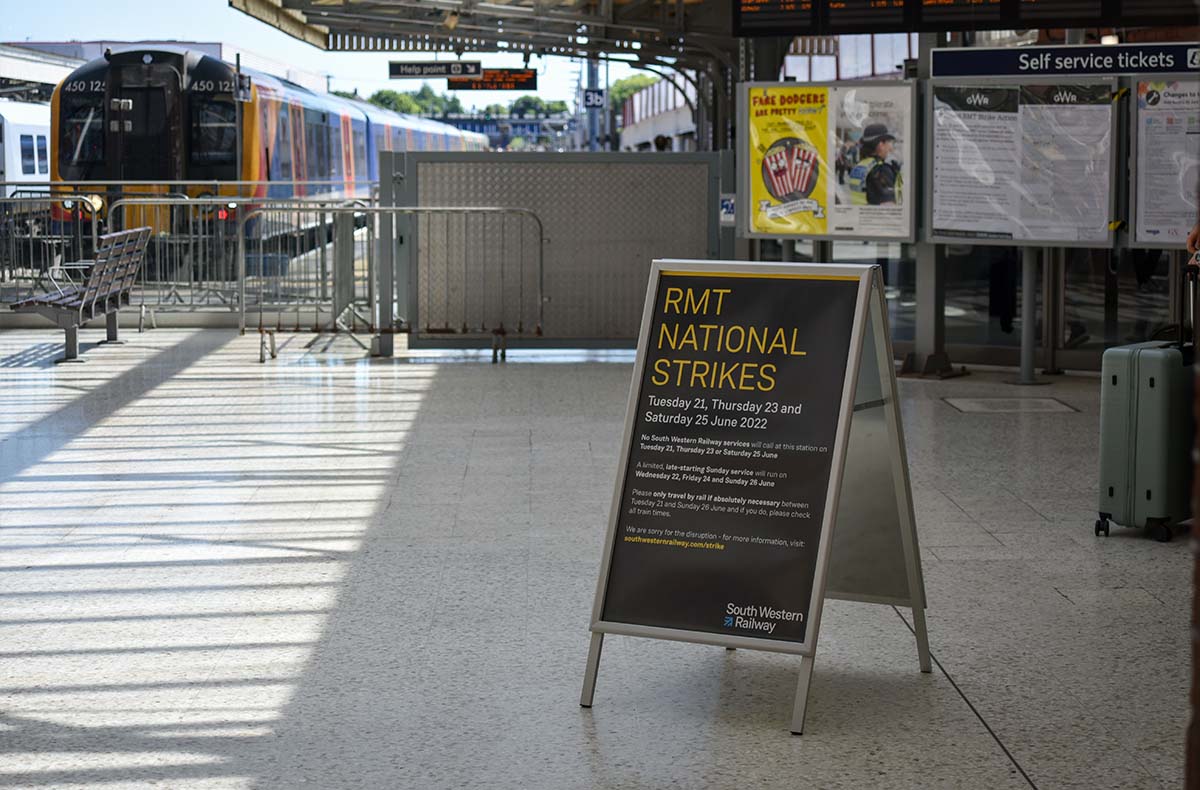
Over the past six months, a wave of industrial action has swept across the United Kingdom, the likes of which have not been seen since the trade union discontent of the 1970s.
This has thrust the whole concept of strikes into the national consciousness for the first time in a generation and more. For many years, these disputes would come and go, but were hardly a mainstay of the news agenda.
No longer: now journalists, politicians, and the general public are acutely aware of the fights going on—yes, for better pay and conditions, but often too for the future shape of entire industries. So far, this has involved nurses, ambulance drivers, railway workers, teachers, bus drivers, postal workers, refuse workers, civil servants and many others, with firefighters the latest to join the action.
The spark that lit the flame for the strikes—and other forms of industrial action, such as work to rule—was what’s been dubbed “the cost of living crisis.” What that means, in reality, is millions of workers seeing huge inflationary pressures squeezing wages, making them a lot poorer.
Of course, the unions looked at this situation and sprang into action to defend their members’ living standards, as is their historical mission. They can hardly be blamed for doing so.
Yet there’s more to this crisis; it’s not just about the way inflation has spiraled out of control, or the economic fallout from the disastrous Liz Truss premiership which crashed the British economy.
Step back, and you will find unions digging in because they are also fighting against what Ministers repeatedly refer to as “modernization.” For the unions, that is code for slashing budgets and jobs and doing so after a decade defined by austerity, Brexit, and then the pandemic, during which many workers arrived at the conclusion that Britain’s economy was not working in their interests.
Evidence of this can be seen in the railways, where ongoing walkouts have been taking place since last summer. As we emerged from Covid, the government took the view that people would be less likely to use trains because working from home was considered the “new normal.” This wholly short-term approach resulted in £2 billion in funding being removed from the industry, triggering job losses, changes to working conditions, and raising questions about safety.
On the railways and beyond, the government has not exactly moved at lightning speed to find solutions to disputes, instead adopting an arm’s length strategy in the hope that unions and employers find common ground. This has caused no end of frustration. For instance, the Royal College of Nursing, not traditionally a militant outfit, recently accused the Health Secretary, Steve Barclay, of “desperately looking for new ways not to negotiate with nurses.”
Union general secretaries, by nature deeply pragmatic people, know what’s going on. Deals for public sector workers must be signed off across Whitehall departments; or, to put it another way, the Health Secretary can’t rubber-stamp a deal for nurses without getting the thumbs up from officials at the Treasury—and probably 10 Downing Street—into the bargain.
This is all about clawing back the estimated £400bn the exchequer spent dealing with the Covid pandemic. Yet for the unions, cuts under the guise of modernization is a colossal strategic mistake as this only stifles and slows that badly needed post-pandemic economic recovery.
It may be that Prime Minister Sunak and the Tories are hoping public support for strikes wanes as they drag on, and people have their travel plans disrupted or fume over loved ones being unable to readily access hospital treatment.
Perhaps they hope to see a fall in inflation, thinking that would make it cheaper to reach settlements. If that’s the case, then they are likely to be disappointed, because any deals relating to last year’s pay claim would be pegged to the rate of inflation at that time.
As Sharon Graham, the leader of the powerful Unite union, has publicly told Sunak, “there can be no progress on the upcoming (2023/4) NHS pay review while the current 2022 NHS pay claim remains unsolved.”
Equally, claims by Ministers that pay deals mirroring inflation are likely to further fuel the problem have drawn the ire of economists who simply don’t agree. Simultaneously, the government is moving an anti-strike bill through parliament at speed and with little real scrutiny. The aim is to impose minimum service levels on workers in the public sector should they strike in the future. Long mooted and certainly a result of frustration over the current disputes, this would have the profoundly undemocratic effect of making people go to work when they had collectively withdrawn their labor because of a perceived grievance.
Where will all this end? Disputes tend to conclude with resolution and compromise on both sides. So while on the one hand, it’s a pretty sure bet that unions will get deals for their members that reflect the times, this may come at a cost—namely, the erosion of long-cherished rights.
However, ministers would do well to consider whether they are making a rod for their own backs. The union umbrella group, the Trade Union Congress (TUC), has flagged that inhibiting the right to strike is likely to be counterproductive as it will “prolong disputes and poison industrial relations.”
Whatever happens, it’s a sure bet that industrial action by workers will be an important part of the political and media landscape for many years to come.


